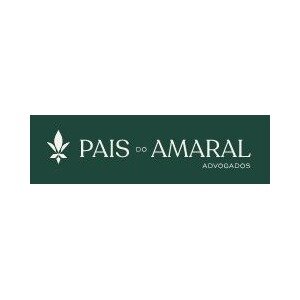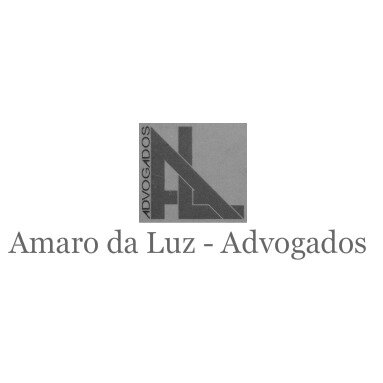Best Art & Cultural Property Law Lawyers in Coimbra
Share your needs with us, get contacted by law firms.
Free. Takes 2 min.
List of the best lawyers in Coimbra, Portugal
About Art & Cultural Property Law in Coimbra, Portugal
Art & Cultural Property Law in Coimbra, Portugal, is a specialized area of law that focuses on the protection and management of art and cultural assets. Situated in a region rich with historical artifacts, Coimbra is home to numerous museums, galleries, and cultural sites. The legal framework in this field aims to safeguard Portugal's cultural heritage, ensuring that artistic and cultural properties are preserved and appropriately managed. The laws address issues such as the ownership, transfer, export, and restitution of cultural property, reflecting international agreements and national standards.
Why You May Need a Lawyer
There are several common situations where individuals or institutions may seek legal assistance in Art & Cultural Property Law:
- Acquisition or Sale of Artworks: Legal guidance is often necessary to navigate the complexities of buying or selling artworks or cultural property, especially in compliance with local and international laws.
- Provenance Disputes: When disputes arise regarding the ownership history of an artwork, a lawyer can help resolve these issues and ensure adherence to legal standards.
- Cultural Heritage Protection: If you own or manage cultural property, you may require legal advice to ensure you comply with preservation laws and regulations.
- Restitution Claims: In cases where cultural property is claimed to have been misappropriated, a lawyer can assist in managing restitution claims.
- Intellectual Property Concerns: Legal expertise is vital when dealing with copyright, trademark, or other intellectual property issues related to artworks.
Local Laws Overview
Here are some of the critical aspects of local laws concerning Art & Cultural Property Law in Coimbra:
- Heritage Protection Legislation: Portugal has robust laws for the protection of its cultural heritage, requiring permits for alterations or restoration works on listed buildings or sites.
- Export Regulations: There are strict regulations governing the export of cultural goods from Portugal, including necessary permits and documentation to prevent illicit trafficking of cultural artifacts.
- Museum and Collections Management: Laws provide guidelines on how museums and private collections should be managed, ensuring public access and proper maintenance of cultural items.
- International Conventions: Portugal is a signatory to various international treaties relating to cultural property, such as the UNESCO Convention against Illicit Trafficking in Cultural Property.
Frequently Asked Questions
1. What qualifies as cultural property in Portugal?
Cultural property in Portugal includes monuments, artifacts, artworks, and other items of historical or aesthetic significance, recognized for their cultural value at a national or local level.
2. How can I verify the legality of an artwork's provenance?
Working with a legal expert, you can conduct due diligence by examining the history of the artwork's ownership, documentation, and compliance with applicable laws and regulations.
3. Are there penalties for illegally exporting cultural goods?
Yes, unauthorized export of cultural property can result in severe penalties, including fines, confiscation of goods, and potential legal action.
4. How do I register a cultural property in Coimbra?
You must contact relevant local cultural authorities to register a cultural property, providing necessary documentation and fulfilling required criteria to have an item legally recognized as cultural property.
5. Can I challenge a restitution claim?
Yes, you can challenge restitution claims by presenting evidence of legal ownership and adherence to relevant legal procedures. Legal representation is recommended in such cases.
6. What rights do artists have under Portuguese law?
Artists in Portugal are protected under intellectual property laws, granting them moral rights, copyright, and economic rights over their creations.
7. Is there a tax incentive for cultural donations?
Yes, Portugal offers tax incentives and deductions for donations to cultural institutions, subject to specific eligibility and documentation requirements.
8. What is the role of UNESCO in cultural property law in Portugal?
As a UNESCO member, Portugal collaborates in international efforts to combat illicit trafficking of cultural property, aligning its laws with UNESCO's conventions and standards.
9. How are cultural heritage sites protected in Coimbra?
Cultural heritage sites are protected through national legislation, which mandates specific preservation and management practices, often overseen by local preservation bodies.
10. Can I loan cultural property to foreign institutions?
Yes, but such activities are subject to specific legal agreements and permits to ensure the protection and return of the items.
Additional Resources
Here are some resources and organizations that may be helpful for legal advice in Art & Cultural Property Law:
- Ministry of Culture (Portugal)
- Direção-Geral do Património Cultural (DGPC)
- Portuguese Association of Museums (APOM)
- UNESCO National Commission for Portugal
- Institute of Museums and Conservation (IMC)
Next Steps
If you require legal assistance in Art & Cultural Property Law, consider the following steps:
- Identify Your Needs: Clearly define your legal situation or concern to understand the specific legal expertise required.
- Seek Qualified Legal Professionals: Look for lawyers or firms in Coimbra with experience in Art & Cultural Property Law.
- Consult and Evaluate: Schedule consultations with potential legal advisors to discuss your case and evaluate their capabilities.
- Prepare Documentation: Gather all relevant documentation and evidence to present during legal consultations.
- Proceed with Legal Action: Based on legal advice, decide on the appropriate course of action and engage your lawyer in proceeding with necessary legal steps.
Lawzana helps you find the best lawyers and law firms in Coimbra through a curated and pre-screened list of qualified legal professionals. Our platform offers rankings and detailed profiles of attorneys and law firms, allowing you to compare based on practice areas, including Art & Cultural Property Law, experience, and client feedback.
Each profile includes a description of the firm's areas of practice, client reviews, team members and partners, year of establishment, spoken languages, office locations, contact information, social media presence, and any published articles or resources. Most firms on our platform speak English and are experienced in both local and international legal matters.
Get a quote from top-rated law firms in Coimbra, Portugal — quickly, securely, and without unnecessary hassle.
Disclaimer:
The information provided on this page is for general informational purposes only and does not constitute legal advice. While we strive to ensure the accuracy and relevance of the content, legal information may change over time, and interpretations of the law can vary. You should always consult with a qualified legal professional for advice specific to your situation.
We disclaim all liability for actions taken or not taken based on the content of this page. If you believe any information is incorrect or outdated, please contact us, and we will review and update it where appropriate.










